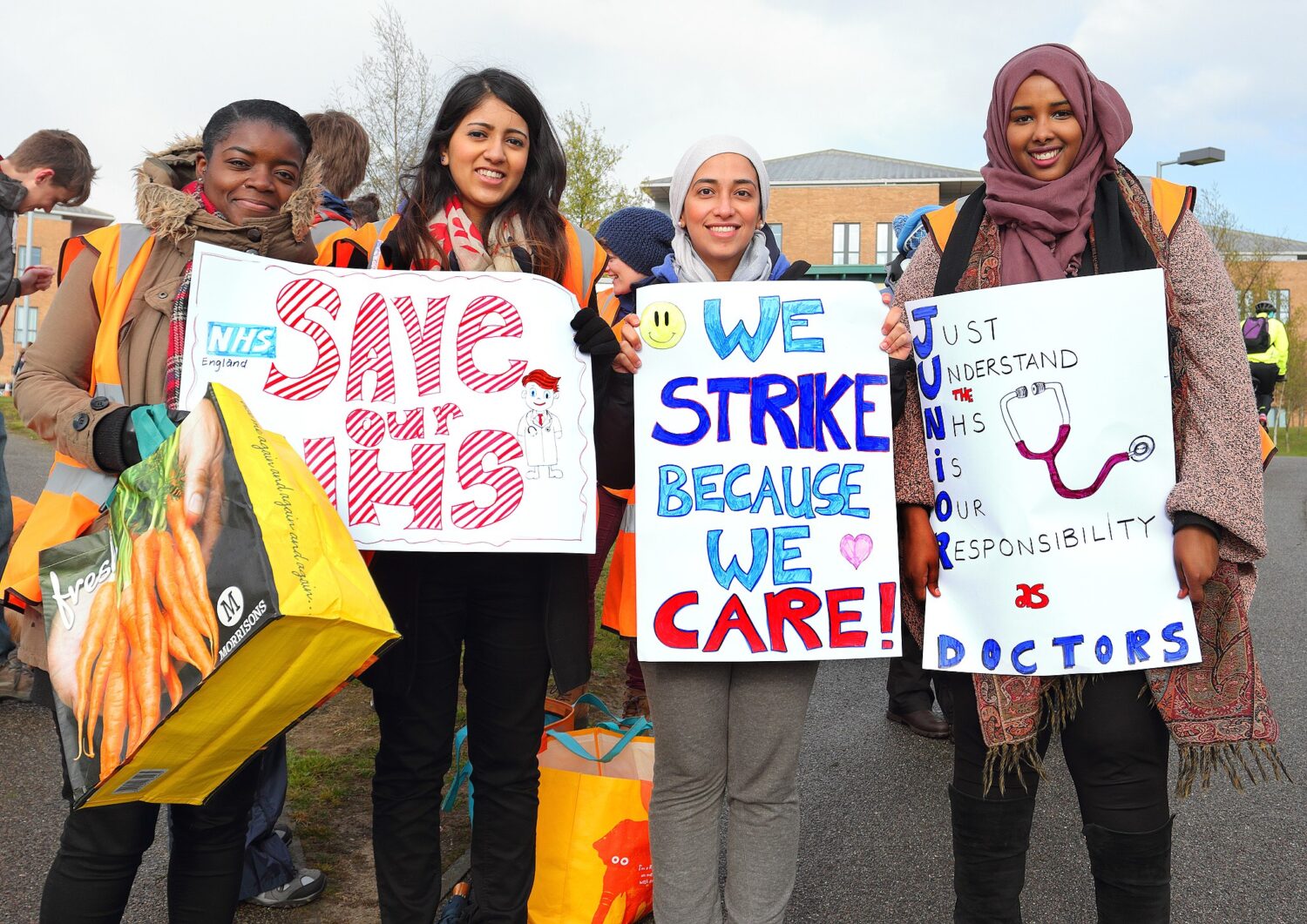A simple diagnosis
The NHS model is under greater threat than at any time in its history. But the truth is, any healthcare system would need more money. Iggy Wood talks to Dr Nicholas Barr
“The 75-year-old model of the NHS is unsustainable.”
So said Sajid Javid, the former chancellor and later health secretary, in a Times article earlier this year. It was no great surprise to learn that he thinks as much. After all, out of the media spotlight, right-wingers from Margaret Thatcher to Nigel Farage have been arguing against socialised healthcare since 1948. What was surprising was that Javid called for “extending the contributory principle” so openly – and that people seemed to listen.
Not so long ago, the only people prepared to publicly question a health service free at the point of use were the hardline freemarketeers of the Tufton Street thinktanks. Politicians, even very right-wing ones, were far too scared. On rare occasions of ill-judged honesty, as Paul Nuttall found, the backlash was swift and severe. Javid’s proposals, however, were widely covered, and presented as worthy of serious consideration. What has changed?
Perhaps this shift reflects the seeming reluctance of the NHS’s traditional champion, the Labour party, to marshal a response to its critics. In the midst of an astonishing health crisis directly caused by Tory policy, Wes Streeting and Keir Starmer are busy talking about risky (and potentially very expensive) plans for self-referral and the use of private providers. Much more useful would be to give the public – and, even more so, the media – an education in basic healthcare economics.
“The NHS is not a socialist plot,” says Dr Nicholas Barr. “It’s one of a tiny number of rational responses to the reasons why, in complex areas, markets don’t work.”
Barr is a professor of public economics at LSE. He has worked for the World Bank and the IMF, making him, presumably, a member of the ‘left-wing economic establishment’ that worked so hard to bring down Liz Truss. But he is keen to emphasise that the case for funding healthcare through taxation is not ideological – rather, it is ‘rooted in economic theory’.
“If you didn’t have catastrophic market failures, then you would buy medical insurance and that would work well – and if you couldn’t afford a good policy, then there would be income redistribution such that you could afford a good policy.
“The problem is catastrophic information failures, because it’s technically quite complicated, and then a huge set of different problems in the market for medical insurance.”
To fully explore all the problems with private and insurance-based healthcare systems would take a textbook rather than an article – and many exist, not least Barr’s The Economics of the Welfare State, first published in 1987 and now on its sixth edition. But, in summary, unique features of the healthcare sector, particularly the information asymmetries between patients, healthcare providers and insurers, almost inevitably lead to inflated prices, overprescription and gaps in coverage.
A classic example is the ‘third party payer problem’. In countries like the US – or like Germany, which has a ‘social insurance’ system – fully insured patients have little incentive to limit their demand for healthcare, and medical providers often have a strong incentive to maximise their provision, because it is a ‘third party’ (the insurer) who foots the bill. This leads to overprescription, and, if left unchecked, even so-called ‘cost explosions’. In the US, where the problem is particularly bad, spending on healthcare is more than two times the OECD average (although the third party payer problem is far from the only cause).
The NHS’s taxpayer-funded model and universal coverage help to avoid the third party payer problem – as well other common issues like adverse selection and insurer oligopolies – making it, in global terms, astonishingly good value for money. Talk of the NHS becoming ‘unaffordable’, then, is straightforward economic illiteracy.
So what is behind our healthcare crisis? The intuitive, obvious answer – not enough money – turns out to be the right one. And Barr is keen to highlight that more funding is needed for reasons which are ‘purely technical’.
The most obvious driver is Britain’s ageing population, or, as Barr puts it, “more older people with multiple complex medical problems”. It is not just that we are living longer: it is that we’re spending many more years of our life in a state of ill health. By 2050, one in four people in the UK will be aged 65 or over. On its own, this trend would mean that holding medical spending constant in real terms – i.e., adjusting for overall inflation – would in effect represent a reduction.
Less talked about is technological progress, another key driver of rising spending. While medical innovation is clearly a good thing, it cannot help but exert upwards pressure on health spending. A disease which is fatal and untreatable will have massive human and economic costs, but – precisely because there is no treatment – little impact on healthcare spending. As a result, the discovery of therapies for such diseases is inevitably accompanied by rising costs to healthcare systems.
There are further economic quirks that exert upwards pressure on healthcare spending, including the ‘Baumol cost disease’, caused by the slower productivity growth of services compared to the economy as a whole. The sum result, says Barr, is that calls for increasing medical spending do not represent “special pleading on the part of doctors or nurses”. Rather, the need for higher investment every year simply reflects “the nature of medical care as a commodity”. It is true that funding increases have to be managed carefully. Under Tony Blair, for example, much of the dramatic rise in healthcare spending early on in his tenure was almost immediately used to increase pay, which, Barr says, was not the only thing the money should have been spent on. But the idea that we can reform or privatise our way out of the healthcare crisis is a fiction: if we want to provide the standard of care that people expect, real terms spending increases are simply inevitable.
There are, of course, ways in which the NHS could be improved. While Sajid Javid pointed to the Norwegian charges for GP appointments as an example of good practice, Barr highlights a rather different feature of their system: having a named, regular doctor.
“If people have access to a GP with their clinical record, and there is continuity of care – so they know you – it reduces hospital admissions by a third, and mortality by 25 per cent.”
Less clearly beneficial is increased reliance on private providers as proposed by Labour. Barr is keen to stress that there is a role for the private sector, and highlights the Oxford University-AstraZeneca partnership as an example of the potential for positive collaboration. But the risk is that at least some of the private providers likely to receive NHS contracts under Labour’s proposals are ‘predatory’, says Barr, and will be looking to extract excessive profits.
The prospects for self-referral – Starmer’s other big headline-grabbing proposal – are similarly uncertain.
“It may sound good politically,” says Barr. “But the real problem is a bottleneck. And access to self-referral to consultants merely shifts the bottleneck – it does nothing to relax it.” He also points out that primary care tends to be the cheapest and most convenient place to treat people.
Those towards the political centre may baulk at the prospect of telling the public that spending on healthcare needs to increase significantly, every year, indefinitely. But it is the truth – and something that can’t be avoided through reform or privatisation. Labour’s job, then, is both simple and difficult: being honest about what good healthcare costs.
Image credit: Roger Blackwell, CC BY 2.0 via Wikimedia Commons

